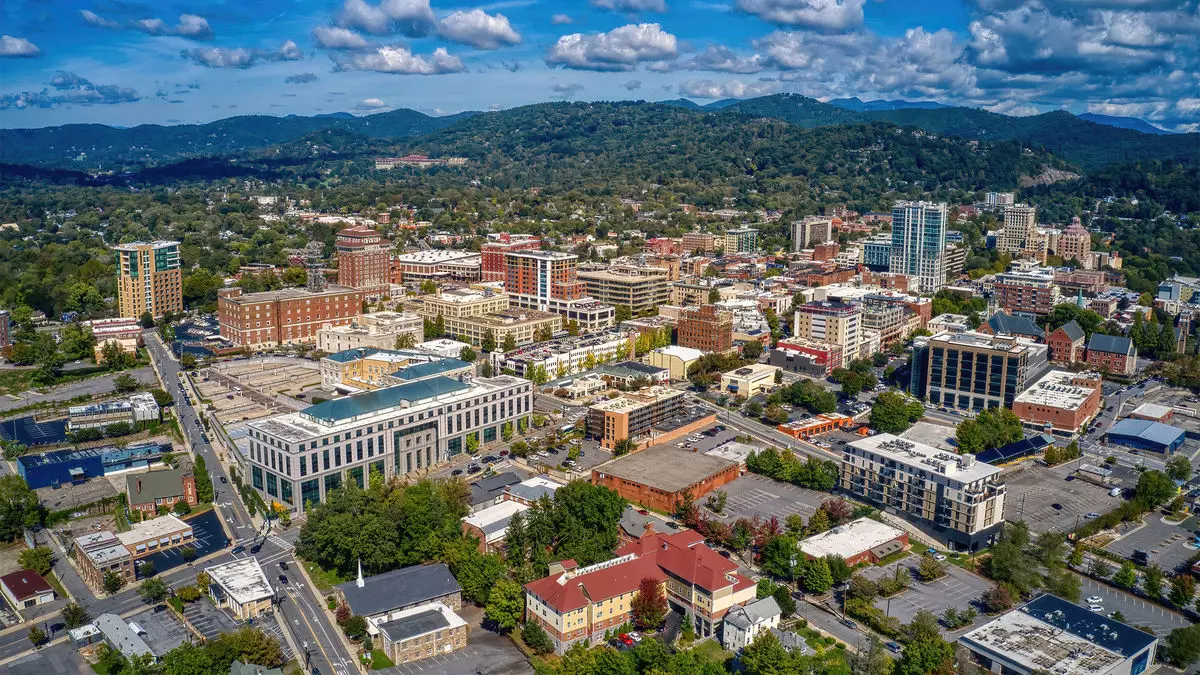Hurricane Helene has left a notable mark on North Carolina, particularly in the mountainous and foothill areas that are popular travel destinations. The widespread effects of the storm, characterized by unprecedented heavy rainfall and fierce winds, have prompted various advisories and warnings from local authorities and travel organizations. It is evident that the devastation caused by the hurricane transcends mere inconveniences for the residents and visitors alike; it poses serious hazards that may threaten safety and infrastructure.
The North Carolina tourism board, Visit North Carolina, has emphasized the importance of exercising caution during this tumultuous time. The recommendation to avoid trips to the mountainous regions is rooted in practical concerns, as travelers may face numerous threats along their journey. In light of these warnings, would-be visitors must re-evaluate their travel plans, especially if they have yet to confirm the operational status of their intended accommodations and attractions. The lack of reliable communication during such emergencies—exemplified by widespread power and cell service outages—complicates the ability to receive crucial updates on the situation.
State and local officials have painted a stark picture of the road conditions in western North Carolina. The risks of flash flooding, landslides, and downed trees have created treacherous travel scenarios for anyone daring enough to venture into the area. The threat of additional flooding, due to already saturated soil, exacerbates concerns over safety. Furthermore, visitors are advised to stay abreast of local conditions, as the landscape’s instability can change rapidly, making roads impassable without warning.
Travelers ignoring these warnings may find themselves caught in precarious circumstances, not to mention the potential for delayed emergency responses. Conditions on the ground remain fluid, and the stark reality is that those who dismiss the advisories could inadvertently place themselves in harm’s way.
In addition to the hazards associated with driving through the mountains, the Appalachian Trail has also become a cause for concern. The Appalachian Trail Conservancy has issued warnings against hiking along sections of the trail, particularly in the southern Appalachian region from Georgia to central Virginia. A state of emergency exists in North Carolina, Tennessee, and Virginia, indicating the level of risk that has been recognized by officials.
The potential for landslides in conjunction with road closures throughout the area renders many trails completely off-limits. Hiking, often considered a safe and invigorating outdoor activity, becomes perilous without proper access and an understanding of the surrounding conditions. Those planning to hike in the affected areas should heed the advice of local organizations and re-assess their plans for outdoor excursions.
The storm’s onslaught has temporarily shuttered several hotels and resorts, particularly in the scenic city of Asheville. Icons like the Omni Grove Park Inn and the Grand Bohemian Asheville have both announced closures for safety reasons, flagging concerns about access to essential services such as power and water. It is a sobering reminder of the fragility of tourism infrastructure in the face of natural disasters.
These closures not only impact tourists who expected a relaxing stay but also underscore the challenges faced by hotel operators in the aftermath of such a crisis. Each establishment has committed to assessing damage and prioritizing the safety of their guests and staff before considering reopening. Online updates indicate that many hotels are focused on assessing the situation while also supporting affected employees, showcasing a communal resilience that often surfaces during crises.
In contemplating travel to North Carolina in the wake of Hurricane Helene, one must consider the broader implications of one’s decision. The devastation wrought by the storm will take time to mend, both in terms of infrastructure and community spirit. Acknowledging the persistent risk factors and travel advisories is paramount for ensuring safety during this difficult time.
Travel enthusiasts must wait for the all-clear signal before planning their mountainous adventures, recognizing that while the charms of North Carolina’s landscapes are abundant, they should never come at the cost of safety. As North Carolina begins the long journey of recovery, patience and understanding will be required from both visitors and residents alike. Travel plans may need to be postponed, but the promise of better days ahead serves as a consolation for those longing for the return of normalcy in this beautiful yet fragile region.

